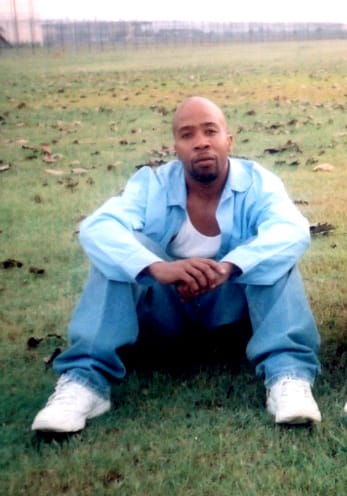by Curtis Davis
On Aug. 29, 2005, the U.S. Gulf Coast was struck by a monstrous Category 5 hurricane. Meteorologists gave her the name Katrina, which means to cleanse.

The storm of the century washed away a shroud of secrecy covering the decay of poverty and corruption that rested beneath the normally festive environment that marked the city of New Orleans as the last truly “European” city on Earth.* The catastrophic destruction and lackluster government response had people crying out in moral outrage that this level of third world poverty could actually exist in North America – which is kind of strange seeing as how for years millions from all over the world made their pilgrimage to “Sin City” to drown their hedonistic urges in the festivals and parades that give praise to the Roman God Bacchus, the week prior to the Christian holiday known as Lent.
Two years after Katrina, 60,000 protestors descended on the small Louisiana town of Jena to confront a district attorney who bragged about his ability to take lives “with the stroke of a pen” when he charged six Black high school students with attempted second degree murder for a fist fight stemming from racially motivated hazing from white students at the campus.
Eight years later the Supreme Court has taken notice that the U.S. death penalty might need to be abolished because of the arbitrary manner in which prosecutors are deciding who gets to get the needle, demonstrated by the fact that 50 percent of all death penalty cases in the entire U.S. come from a single parish in Northern Louisiana. (Google Caddo Parish District Attorney Dale Cox.)
Several watchdog organizations have raised serious concerns about the racial disparity in the way Blacks and Whites are being charged for crimes exhibiting similar behavior. In most cases involving a homicide, the decision to charge white suspects with manslaughter and Blacks with second degree murder is a disturbing practice that has amounted to 89 percent of those serving life in Louisiana being people of color. Maybe the former has something to do with the fact that 98 percent of the state’s 66 parishes have white men in the position of district attorney.
Hurricane Katrina made the situation much worse when most of the evacuees from New Orleans were Black people, pushed by the storm, into the more conservative Northern parishes, where law enforcement officials took a very hostile approach to dealing with what they saw as an invasion of “outsiders.”
The Supreme Court has taken notice that the U.S. death penalty might need to be abolished because of the arbitrary manner in which prosecutors are deciding who gets to get the needle.
In a very interesting case in point, a New Orleans evacuee living in a Baton Rouge hotel was arrested and sentenced to life for fatally wounding a suspected serial rapist while trying to make a citizens’ arrest. The “victim” was a local white man with political ties. His name was Corey Hawkins and the defendant was a Black man with no criminal record named Ricky Davis.
Mr. Davis was one of the many thousands of people who did not leave New Orleans ahead of the storm. Once the levees broke, he suddenly found himself in a modern day city of Ninevah, bodies floating in the streets and desolation everywhere. He worked his way through the makeshift refugee camps and two months after the storm was living in a roach motel in Baton Rouge.
On Oct. 29, 2005, exactly 60 days after the storm hit, Ricky Davis was sitting in his hotel room at the antebellum named Plantation Inn Hotel, when he was sought out by two female Katrina evacuees who had reported to the police that they had been raped by a white sexual predator. According to the ladies, the police “weren’t doing anything” to protect them, and they were frightened even more because the suspect was seen lurking in the parking lot just a few minutes prior.
Ricky gave his cellphone to his girlfriend and instructed her to call the police and proceeded to the parking lot with the intention of detaining the suspect until the police arrived.
After arriving at the parking lot, witnesses pointed out the alleged predator stalking in a parked car. Mr. Davis confronted the suspect, informing him that several young Black females had accused him of rape. The situation escalated when the alleged rapist attempted to shoot Mr. Davis and run over him with his car.
Hawkins subsequently died as a result of what was most likely a self-inflicted gunshot; however, in a remarkably amateurish investigation by local detectives, police failed to conduct a routine ballistics check on the weapon found in the victim’s lap.
Several watchdog organizations have raised serious concerns about the racial disparity in the way Blacks and Whites are being charged for crimes exhibiting similar behavior.
Ricky Davis was arrested and charged with manslaughter because of the mitigating factors of the case. That changed once the Hawkins family complained to their fellow Baton Rouge friends and contacts in the DA’s office. The sentiment went something like this:
“How can an ‘outsider’ come to our parish and make a citizens’ arrest? He’s not a citizen of Baton Rouge; he’s a damn refugee.”
Before long the family successfully convinced the DA’s office to upgrade the charge to second degree murder. The process by which the prosecutor used a “non-jury indictment” to make the upgrade is currently under review in the state’s highest court. A crime that has a mandatory life sentence can only be implemented by a grand jury consisting of nine members.
The DA and the foreman in this case are alleged to have just signed the thing themselves without bothering to run it by the body. Ricky Davis went to trial and was found guilty as charged with a 10-2 jury verdict. Did I forget to mention that Louisiana is the only state where one can lose his freedom forever without having to have the U.S. gold standard of a unanimous verdict?
Ricky Davis was arrested and charged with manslaughter because of the mitigating factors of the case. That changed once the Hawkins family complained to their fellow Baton Rouge friends and contacts in the DA’s office.
The good ol’ boy system runs deep and, whether right or wrong, a Blackman who takes the life of a white person is doomed to meet the wrath of Confederate-inspired Southern justice.
According to Michigan State Police Trooper Jeffery Werda, who gave an interview to the Associated Press: “I was told that I could go ahead and beat someone down or bitch slap them and they would do the report. I was told this was my gift from them for helping with the hurricane relief efforts.
“Comments were also made throughout the night by the Baton Rouge officers that they were told by their commanding officer to harass the evacuees from New Orleans because they wanted them to leave Baton Rouge.”
In light of such attitudes from local law enforcement, it is clear that Ricky never had a chance of receiving fairness in such a toxic judicial environment. The Ricky Davis affair is just one of the little known travesties that has arisen as a result of the storm.
In Louisiana, a life sentence means you die in prison. Mr. Davis’ act of heroism has turned him into a victim of an arbitrary racially motivated legal lynching. If Black Lives Matter, it’s hard to tell down here in Louisiana.
In Louisiana, a life sentence means you die in prison. Mr. Davis’ act of heroism has turned him into a victim of an arbitrary racially motivated legal lynching.
*New Orleans reminds many of an old school world that no longer exists anywhere on earth, not even in Europe. Although New Orleans is in the U.S., it is different from any other place for the things that can be done there and the way the people act.
For more info, email Ricky at Jpay.com-554718. Curtis Ray Davis II is a freelance journalist doing life; he’s been incarcerated since 1990 on a wrongful conviction. Email him at Jpay.com-320151 or write to Curtis Ray Davis II, 320151, General Delivery, Louisiana State Prison, Angola LA 70712.




